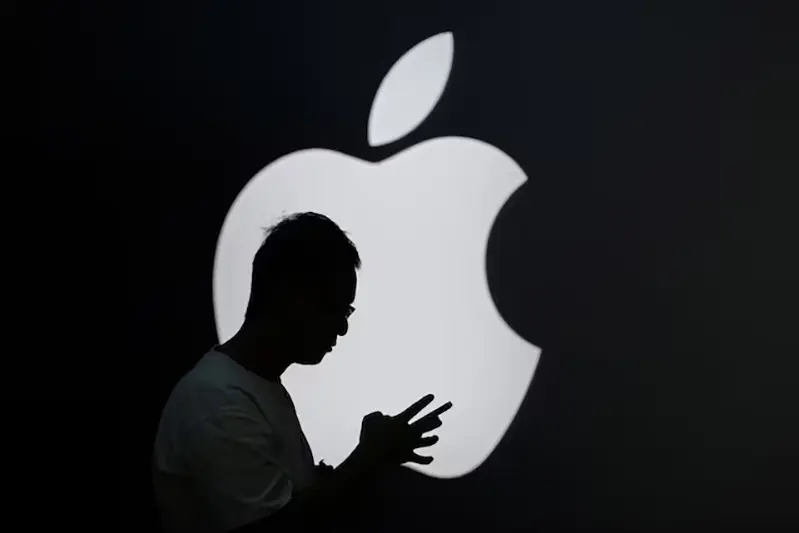

By Stephen Nellis
September 8, 2025 – 4:03 AM PDT

SAN FRANCISCO (Reuters) – When Apple (AAPL.O) debuts new iPhones on Tuesday, analysts say its biggest challenge will be to ride out another ho-hum launch as rivals have skated past it in embedding artificial intelligence into their products and services.
The biggest draw this year could be a rumored “iPhone Air”, a phone slimmer than what Apple has sold before and taking its name from the company’s slender laptop MacBook Air.
Apple would need to iron out how to pack batteries and cameras into a thinner device, analysts said, and seek to price it between the base iPhone 17 models and more expensive Pro models to attract a large number of customers.
Dipanjan Chatterjee, vice president and principal analyst at Forrester, said a slimmer iPhone could spur upgrades. “It’s been a while since we have seen any meaningful update to the form factor of the device beyond tepid incremental changes, and the novelty of the Air will likely induce many 14, 15 and even 16 iPhone users to migrate up,” Chatterjee said.
The slimmer phone could also be a stepping stone toward an iPhone that folds out flat like a book and would act as a platform for an upgraded Siri, neither of which are likely to arrive until next year, analysts said.
Samsung Electronics (005930.KS) is on its seventh generation of folding phones and Alphabet’s (GOOGL.O) is Google on its third, yet Chatterjee estimates they are less than 2% of all phone sales and will not grow beyond 5% “anytime soon.”
A foldable phone is important for Apple to appeal to its customers in China, where consumers like foldables and the company has been losing market share, analysts said.
Historically, Cupertino, California-based Apple has received nearly a quarter of its total sales from the mid-price iPhone segment, said Gene Munster, managing partner at Deepwater Asset Management, which holds Apple shares. He expects Apple to find a way to raise prices across its iPhone lineup without any allusion to U.S. President Donald Trump’s tariffs, perhaps by raising prices for larger storage capacity.
“They learned to play nice with Washington – a straight up price increase might not come off well,” Munster said. “But I think they have rising costs, and they have been loyal to growing margins, and to do that, you have to find some method.”
AI STRUGGLES
Initially, Apple slated improvements to Siri for last spring, but delayed them due to engineering setbacks. Instead, it leaned on a partnership with ChatGPT creator OpenAI to power many AI features on its devices. In contrast, Google’s latest flagship phones were largely designed to showcase the capabilities of its Gemini AI models.
Apple is also in early talks to use Google’s Gemini AI to revamp Siri, according to a recent media report.
Ben Bajarin, CEO of technology consultancy Creative Strategies, said Apple may highlight improved AI processing capabilities of its next generation of Apple Silicon chips that could, in the future, power an “agentic” Siri that takes care of tasks in the background for the owners of the 2.35 billion Apple devices in use around the world, without draining the device’s battery.
“It could be foreshadowing of a broader kind of agentic integration with their operating system, because the operating system is going to be the thing that hits the (chip’s AI processing capabilities) the most,” Bajarin said.
Bob O’Donnell, president at TECHnalysis Research, said that while AI adoption remains in early stages, Apple’s time to catch up without suffering a long-term setback is now likely measured in months rather than years.
“They have a huge share in the U.S., and most people are perfectly content,” he said. “But by this time next year, if Siri still sucks, and if they don’t get the foldable out, I don’t know” whether that contentment will continue, O’Donnell said.
Reporting by Stephen Nellis in San Francisco; Editing by Sayantani Ghosh and David Gregorio
What do YOU think? Click here to jump to the comments!